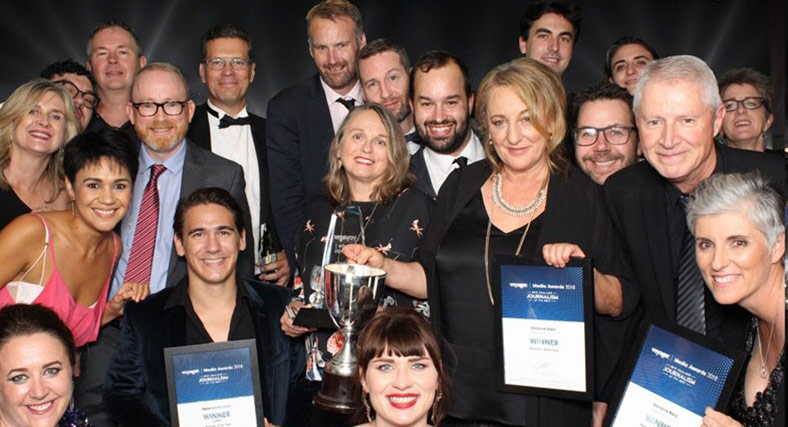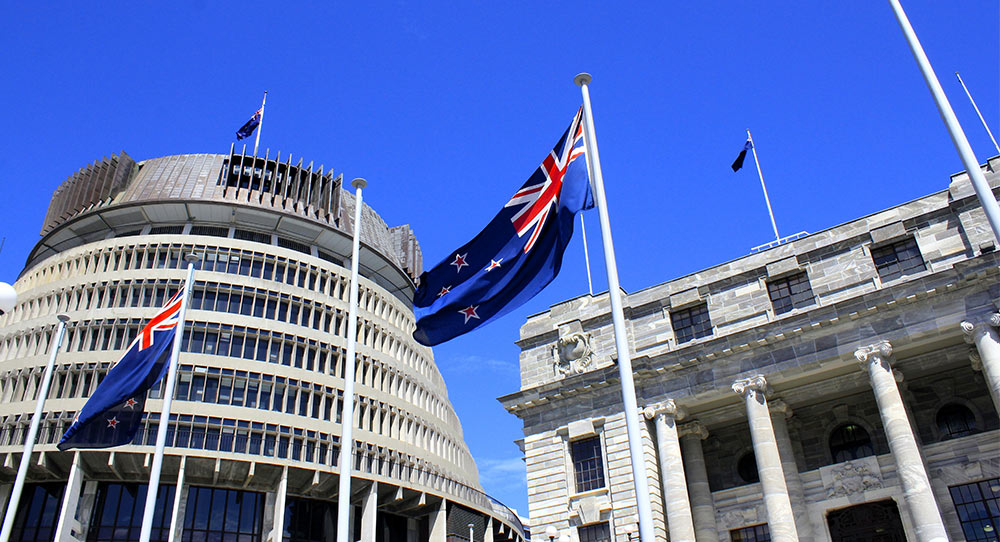Mediaweek’s John Drinnan rounds up the latest media news from the NZ market.
Budget funding
Government proposals for a new free-to-air TV operation at Radio New Zealand appear to have been cut back. Before the election Labour said $38 million would be set aside. Yesterday’s budget allocated just $15 million for the 2018-2019 financial year for RNZ, to be allocated once an investigative committee has reported back to Parliament. Better Public Media campaigners for the new channel are “concerned” Labour promises for the new FTA channel RNZ+ will be delayed or compromised.
Ruth Harley to chair NZ On Air
Dr Ruth Harley has been appointed chair of New Zealand On Air, the government media-funding agency. She was foundation executive director of from 1989 to 1995. Harley replaces Miriam Dean who is ending a second three-year term. Harley was chief executive of the New Zealand Film Commission for 10 years. Harley recently returned from Sydney where she has been a screen industry consultant and she was head of Screen Australia from 2008 to 2013. NZ On Air board allocated NZ$131 million of grants and subsidies to media in 2017.
Voyager Media Awards
For the second year in a row, NZME’s The Weekend Herald was named Best Weekly Newspaper and Newspaper of the Year at the Voyager Media Awards. The 2018 awards are the first sponsored by internet provider Voyager. The New Zealand Herald/NZME had 21 category wins. Rival Stuff, owned by Fairfax, won 16 awards.

Winners from the Voyager Media Awards
There were 104 awards in total.
The Stuff Website Stuff.co.nz – won best website alongside the independent publisher Newsroom.co.nz, whose staffer Melanie Reid was named reporter of the year. Stuff won Best Team Investigation for its investigation The Valley about NZ army activities in Afghanistan.
Magazine of the Year went to New Zealand Geographic for the second year in a row.
Editorial Executive of the Year was New Zealand Herald editor Murray Kirkness. Matt Nippert was Best Business Journalist.
Public Broadcasting
The New Zealand government has said it wants closer relations between state broadcasting institutions Radio New Zealand and Maori TV. Last week the government announced new Maori chairmen of both. Jim Mather, a former chief executive of Maori TV, has been made chair of Radio New Zealand while businessman Jamie Tuuta replaced Georgina te HeuHeu as chair of Maori TV. Both organisations are in transition. Maori TV is struggling to find a mainstream audience and meet targets.
Radio Awards
The 2018 NZ Radio Awards were also held last week, marking the return of Radio New Zealand after a three-year gap because the public broadcaster been unhappy with the raucous tone of the event in the past. The commercial radio body, the Radio Broadcasters Association, branded commercial categories as “premium awards” while RNZ was focused on news and current affairs. Best music show was Jay Jay, Dom and Randell on The Edge. Best Music Non-Breakfast Team was Jono and Ben, The Rock Network. Best Talk Presenter, Breakfast or Drive was Duncan Garner, RadioLIVE Network. Station of the Year, Surveyed Market was More FM Canterbury. Station of the Year, Non-Surveyed Market was 1XX Whakatane. RNZ political reporter Benedict Collins was Best News or Sports Journalist. An RNZ series of interviews with former Prime Ministers won best documentary or podcast.
Beacon Awards
Adshel New Zealand took out the Media Sales Team of the Year award at the NZ 2018 Beacon Awards, which were held last week on May 10.
The accolade recognises excellence within the crucial media owners’ sales function. The judging panel looked for evidence of a clear strategic roadmap that allowed for the delivery of outstanding business performance.
The Beacon Awards are hosted Commercial Communications Council in association with NZME.
More at mediaweek.com.au, or full list of winners here.
Radio Ratings
GfK’s 2018 first quarter audience ratings released last week showed talk stations down compared to the fourth quarter of 2017. Broadcasters attributed the fall to a long hot summer that benefitted music stations. All three talk brands slumped. The Radio NZ cumulative audience was down 17,300 on Q4 and 21,300 for the breakfast program Morning Report. Newstalk ZB was down 17,900, as was the breakfast show. The much smaller audience for Radio Live was down 7,700 – with the breakfast program, The AM Show, down 4,300.
Surprise current affairs move
TVNZ surprised many by moving its interview-based serious current affairs show Q&A into a Sunday 9.30 pm primetime slot. The change from the non-commercial spot on Sunday mornings takes effect on July 29. It is a bold move for the state broadcaster which, along with MediaWorks’ Three, has been withdrawing from its commitment to current affairs.
—
Top photo: NZ Parliament’s ‘Beehive’
